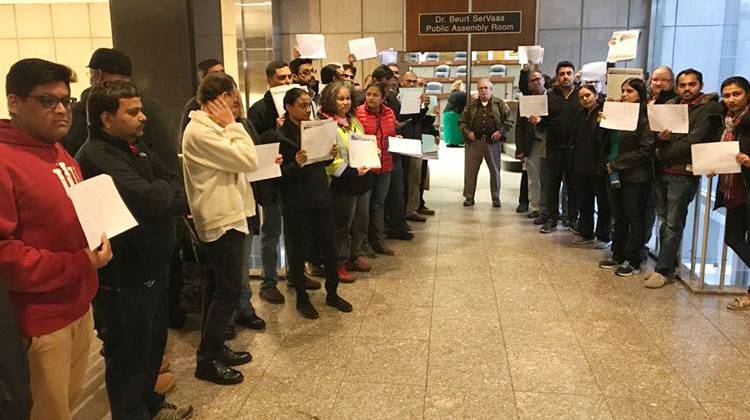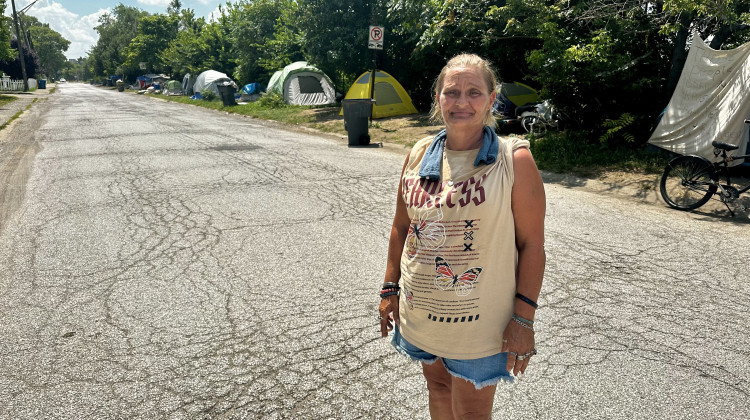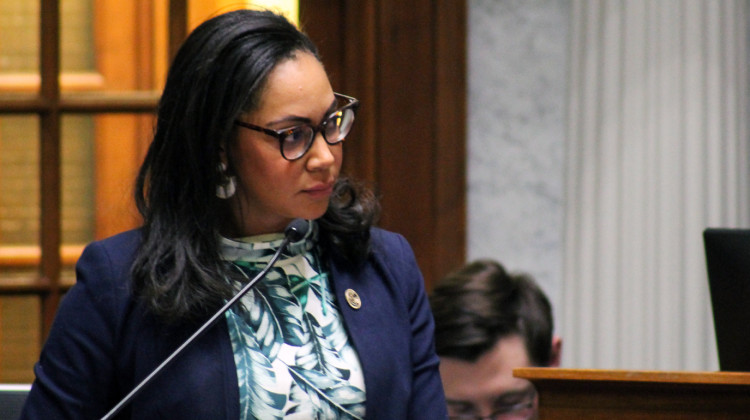
More than a dozen people protested at the meeting where the city-County Council voted 25-0 in an ordinance that would identify high-crime hotels.
Drew Daudelin/WFYIThe Indianapolis City-County Council passed an ordinance Monday that hopes to decrease crime by flagging high-crime hotels, then giving owners a two-year period to either improve conditions or risk losing their license.
More than a dozen people protested at the meeting. Some are owners of hotels they say would fail the city’s test, which primarily involves checking the number of emergency calls made per room.
Mila Petel owns Skyline Motel. She says she supports the ordinance in concept, but says there has been a lack of communication about how the hotels will be evaluated.
“It’s not really an agreement, it’s really understanding of the language, that’s specified in the ordinance, of what’s gonna count and what’s not gonna count, so that we can proactively and retroactively monitor the ratio every month,” Petel says.
Petel says the metric itself is unfair, since many emergency calls are medical, and not tied to any illegal activity.
“I think unfortunately what you're seeing is hotel owners hiding behind that," says Democrat Councillor Jared Evans, who introduced the proposal. "We all know that when someone overdoses on heroin or meth, they become unconscious, and that’s what a lot of their runs are."
Evans says the data gathering system will discover if illegal activity led to each medical call. If a call was made unrelated to any crime, Evans says, it won't count against the owner's record.
Steven Groth, a lawyer representing six hotel property owners, says the ordinance passed is unconstitutional because it does not allow for a hearing prior to any deprivation of property rights.
"[We're] just trying to get the ordinance so that it is accurate and it's aimed at the problem, and it does that correctly without punishing the wrong people," Groth says.
The proposal was based on an ordinance passed in Columbus, Ohio, with changes to some details like the emergency call per room ratio. Evans says that ordinance remains intact after being challenged in court, and says he doesn't think their version will be a problem.
Some opponents argue the process will ultimately hurt the city’s poorest, most vulnerable citizens by leaving them homeless.
Evans says the goal is to get poor people out of unsafe living conditions.
"Out of the 170-something hotels, we have 15 that currently meet the criteria of 2.5 or above [emergency calls per room]. So the overwhelming majority of our hotels in this city are doing business the right way, they're providing a safe and clean place for people to stay at," Evans says.
During the Monday meeting protesters held signs that asked for a chance to speak, something they were unable to do since the public hearing was held a week prior. Some, including Petel, say they were not told when the public hearing would be. Evans says the information was given.
The proposal passed with a vote of 25 to zero.
This post was updated March 13 at 2:20 p.m.
 DONATE
DONATE







 Support WFYI. We can't do it without you.
Support WFYI. We can't do it without you.